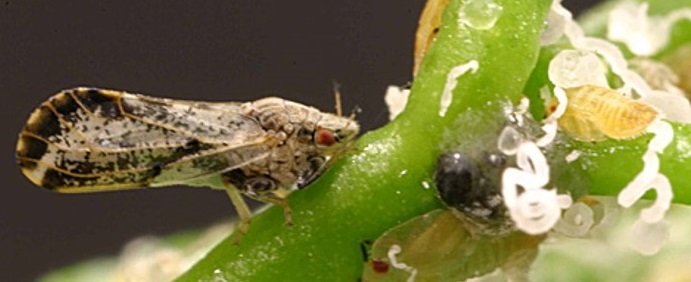Bt toxins for Management of Asian Citrus Psyllid
The Asian citrus psyllid (ACP), Diaphorina citri, is one of the most serious pests in U.S. and global citriculture. ACP transmits a pathogenic bacterium that causes citrus greening or huanglongbing (HLB) disease, which ultimately results in tree death. Severe economic losses are attributed to HLB in world citriculture. Controlling ACP is the first line of defense against the spread of HLB into new areas in Texas and California, and into new plantings in Florida. As an advancement over traditional insecticide strategies, Bonning leads a collaborative and trans-disciplinary project focused on a novel, sustainable approaches for management of ACP that are compatible with biocontrol programs. This group is working to develop pesticidal proteins derived from the soil bacterium Bacillus thuringiensis (Bt) for use against ACP, and to develop appropriate deployment methods.
Collaborators for this work include:
- Michael Blackburn
- William Dawson
- Lukasz Stelinski
- Vladimir Orbovic
- Nabil Killiny
- Manjul Dutt
- Monique Rivera
Related publications
Toxicity of Bacillus thuringiensis-Derived Pesticidal Proteins Cry1Ab and Cry1Ba against Asian Citrus Psyllid, Diaphorina citri (Hemiptera). Fernandez-Luna MT, Kumar P, Hall DG, Mitchell AD, Blackburn MB, Bonning BC. Toxins (Basel). 2019 Mar 22;11(3). pii: E173. doi: 10.3390/toxins11030173.

